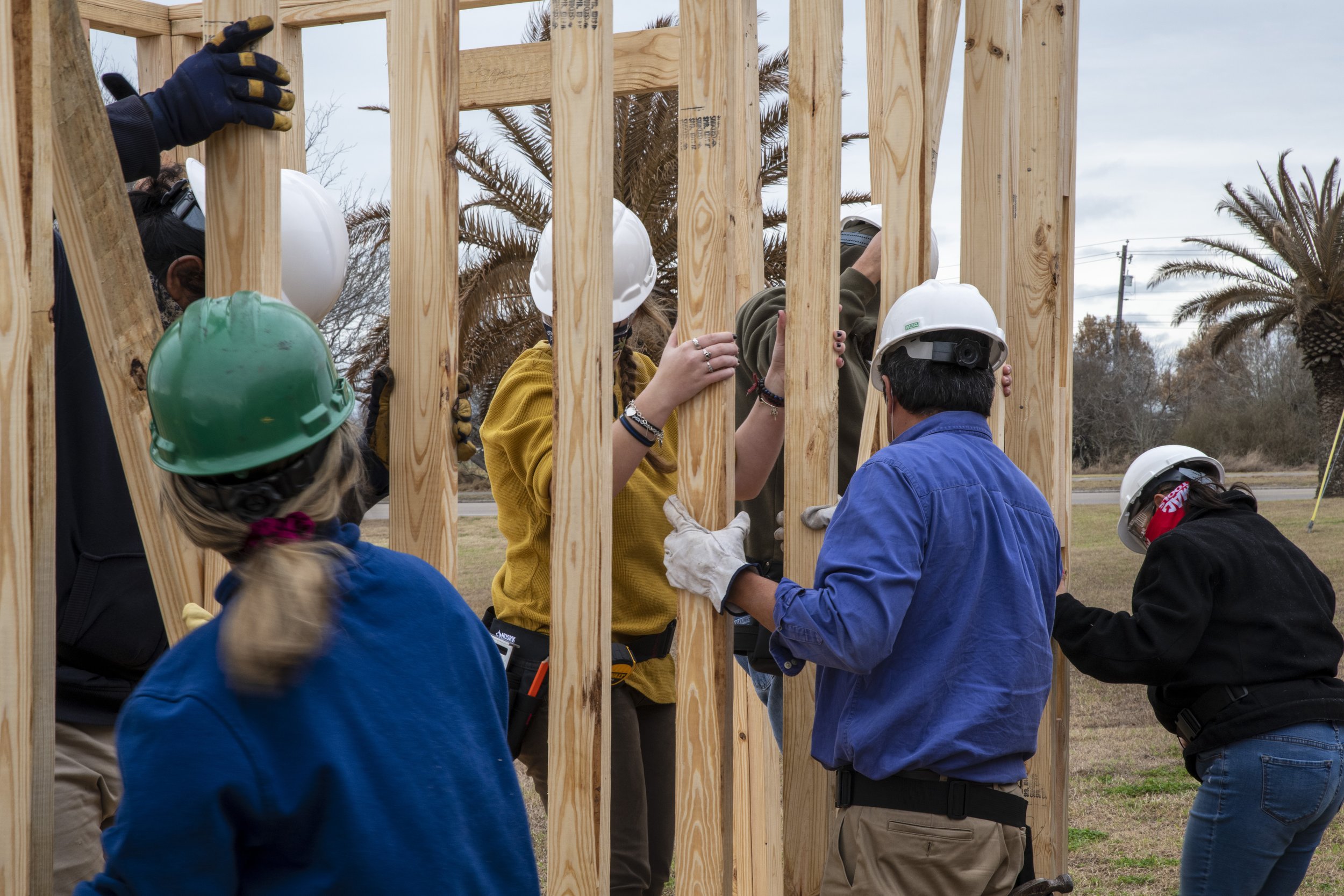Texas Workforce Award Almost $1.3 Million to Del Mar College
Del Mar College
CORPUS CHRISTI, TEXAS (News Release) - The end game is to prepare Coastal Bend residents for well-paying, in-demand jobs among the local workforces. But for some adults, finding that employment may be difficult because they either don’t have a high school diploma, don’t speak English proficiently enough or may be dealing with both situations.
Photo courtesy of Del Mar College.
The Del Mar College (DMC) Continuing Education & Off-Campus Programs Department and their Adult Education Initiatives Division are about to change those odds. The first AEL grant for $$894,251 covers instruction and resources for residents living in Aransas, Kenedy, Kleberg, Nueces and San Patricio Counties who need to earn their high school equivalency certificates. The second, a $395,672 AEL grant, targets residents who speak English as a second language who need to improve their communication skills to successfully pursue other coursework that builds toward their employability, including completing their high school equivalency if need be. The second grant includes residents living in 10 counties, including those already mentioned, along with Bee, Brooks, Duval, Jim Wells and Refugio Counties.
“Del Mar College is about changing lives and helping area residents become more prosperous through educational opportunities that we provide even if they need to start from the ground level before moving up,” said Dr. Leonard Rivera, Associate Vice President of Continuing Education & Off-Campus Programs. “These two grants come at a time when residents living within the targeted counties need these educational resources so they can build a basic foundation and then move on to earning either credentials of value or Marketing Skills Awards that position them for entry-level employment in the high-demand fields available in our area.”
“Statistics show that approximately 17 percent of those over age 25 do not have a high school diploma or the equivalent in the Coastal Bend region; and in Nueces County alone, more than 26 percent of residents speak another primary language other than English,” added Rachel M. Benavides, Senior Director of Continuing & Community Education, who oversees the College’s Adult Education Initiatives Division and applied for the two grants. “We want to lower those figures and provide residents living in communities the College serves the resources to improve their way of life through education and career training that will last a lifetime.”
Photo courtesy of Del Mar College.
The goal is to serve about 635 residents each year who need to complete their high school credentials, including over 50 individuals who are incarcerated, paroled or on pronation. The DMC Adult Education Initiatives Division has also set a benchmark to reach each year about 300 individuals whose primary language is not English. Overall, the two grants will serve over 930 students each year.
Grant funds will cover the cost of faculty, equipment and software. Funds also are available for students wanting to participate in dual enrollment that includes pursuing a career training pathway among Continuing Education’s workforce training programs while earning their high school equivalency certificate. This route provides tuition-free training and support services offered by the College. For students identified as ready to take the high school equivalency test, TWC grant funds will cover the cost through a voucher, or the DMC Foundation will cover the fee.
The Adult Education Initiatives Division provides basic and Continuing Education pathways for students who need to complete their high school equivalency diploma through one of the following pathways:
Adult Basic Education: helps prepare individuals to take the high school equivalency certification test.
English as a Second Language: assists individuals with improving their basic English communication skills.
Adult & Career Education (Career Pathway): individuals can co-enroll to prepare for the high school equivalency certification test while attending one of Continuing Education’s fast-track workforce training programs, including those targeting healthcare and construction trades fields.
Dr. Rivera noted, “Once individuals reach necessary competency levels and complete their pathway through our Adult Education Initiatives Program, they can pursue additional opportunities that will build on their accomplishment and provide additional skills and knowledge they need to enter the workforce.”
DMC Continuing Education fast-track programs can be completed within four to 16 weeks through the Career and Industry Training and Health Care Training Programs. Or, individuals can pursue Workforce Skills Awards that transfer toward DMC academic programs focused on automotive, building maintenance, computer, HVAC (heating, ventilation and air conditioning), instrumentation, millwright and welding training leading to certificates and associate degrees.
“And, even after these individuals complete an associate degree, they can set their goals higher and earn the College’s new Bachelor of Applied Science in Organizational Management and Leadership degree,” added Dr. Rivera. “The potential is within reach for them to do so.” Overall, outcomes supported by the two AEL grants are Del Mar College and the TWC’s main goal … preparing Coastal Bend residents for in-demand fields through life-changing opportunities leading to completing their high school equivalency education to then acquire the skills and knowledge through higher education that support the local and Texas economy.
Residents living in the 10-county area served by these grants can access information about Adult Education at www.delmar.edu/ce/index.html. They can also contact the DMC Adult Education Initiatives Division at 361-698-2101, 1-800-652-3357 (Option #5) or ael@delmar.edu.




